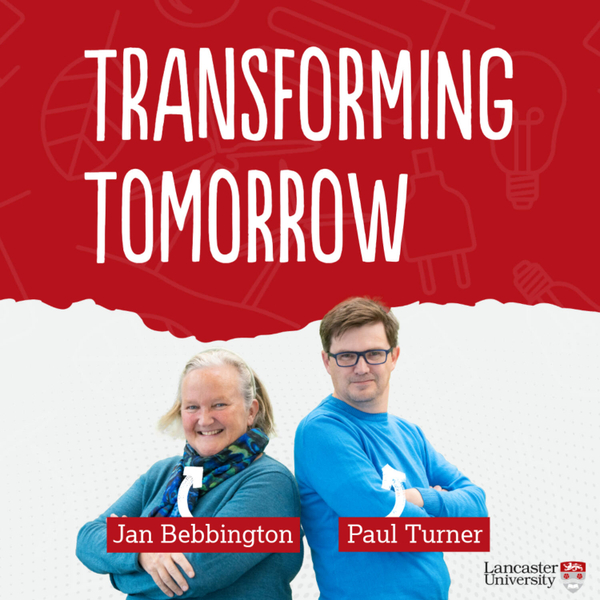
The law is back in town! How can you legislate for plastic pollution all around the world? Is it possible to get close to 200 countries to agree on the way forward? What will such a treaty include?
Dr Alexandra Harrington is an environmental law specialist in Lancaster University Law School who has been part of the negotiations for a proposed international plastics treaty as a UN-accredited observer. It has not been straightforward – hence the lack of an agreement so far.
She takes us behind the scenes on negotiations that have taken place around the world – even if all she ever gets to see are the never-ending corridors of conference centres – and explains why there is the need for a treaty around plastic pollution. And while it may seem to be taking a long time to reach a conclusion, it has been quite speedy compared to similar agreements.
Discover how the plastics situation compares to mercury regulations and chemicals frameworks, how countries have banded together to wield their mass influence, and the unexpected connection between this issue and the effects of climate change for low-lying and island nations.
And is it possible to say Alex’s title of Chair of the International Union for Conservation of Nature World Commission on Environmental Law Agreement on Plastic Pollution Taskforce without taking a breath?
Plus, is there more to Busan than zombies and trains?
Discover more about Alex’s work here: https://www.lancaster.ac.uk/law/people/alexandra-harrington
Transforming Tomorrow
Sustainability is a key consideration for any contemporary business, from biodiversity to modern slavery, seabeds to factory floors. On Transforming Tomorrow, we’ll guide you through the complex, ever-changing and often exciting (yes, really!!) world of sustainability in business. Alongside members of the Pentland Centre, academic experts, and business leaders, we cover the theory and practice of mainstreaming social and environmental sustainability into purposeful business strategy and performance.
Whether you are leading change in your business, or just want to know more about how asteroid mining may influence the future of sustainability, Transforming Tomorrow is the show for you.
Taking you through it all are your hosts, Jan and Paul, who bring insight, perspective, and not a little amount of disagreement, to all the subjects.
Join us every Monday to uncover new insights and become a little more inspired that you can make a difference in sustainability.
You can find transcripts for most episodes at: https://www.lancaster.ac.uk/pentland/resources-for-education-and-practice/transforming-tomorrow-podcast/transcripts/
Send your questions on any of the issues we discuss in Transforming Tomorrow to [email protected] or fill in our feedback form here: https://forms.office.com/e/7Bw4rDiRDt
Find out more about the Pentland Centre and its work here: https://www.lancaster.ac.uk/pentland/
https://doc.your-brochure-online.co.uk/Lancaster-University_Transforming-Tomorrow/
Meet the Hosts
Professor Jan Bebbington is the Director of the Pentland Centre for Sustainability in Business at Lancaster University. Jan is an expert on accounting, benchmarking (to her co-host’s annoyance), and how business and sustainability intersect.
Jan loves nature and wants to protect it – and hopes she can change the world (ideally for the better). She is also motivated to address inequality wherever it is found and especially to eliminate forced, bonded or child labour. Transforming Tomorrow is one small step on that quest.
Paul Turner is a former sports journalist who now works promoting the research activities in Lancaster University Management School – a poacher turned gamekeeper as his former colleagues would have it.
Paul has always been interested in nature and the natural environment – it comes from growing up in Cumbria – and has been a vocal proponent of the work of the Pentland Centre since joining Lancaster University. He does not like rankings and benchmarking, and is not afraid to say so.